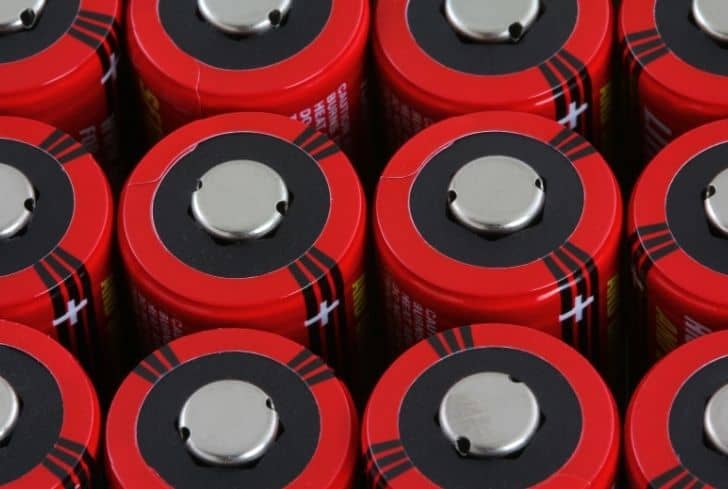Batteries power many things in our homes and offices. Like you would have known, these batteries don’t last forever. After some time, they get weak, and you need to change them. When this happens, many of us throw them away in the waste bin. But then, we should pause to ask. Is there an afterlife for these batteries?
After their primary use, can you recycle them? Are they environmentally friendly? If you want to dispose of them, how do you properly do it?
We have answered all these questions in this post. All you need to do is read along and find the right information to feed on. Ready? Let’s go!
Can You Recycle Lithium Batteries?
It is often the case that when we use lithium batteries, we tend to dispose of them. However, there is more to them than just tossing everything in your waste bin. Like you would do for other household materials, you can also recycle the lithium batteries. This comes very advantageously. At least, you are not contributing to landfills and pollution elsewhere.
However, recycling lithium batteries don’t come easy. They are not your regular recyclables. For a reason, your lithium batteries contain different materials. Hence, you can’t just toss the batteries in the recycling machine.
It is even advisable that you stay clear of dealing with used batteries for long. This is because these batteries contain some materials which may not hold up within the battery anymore. As a result, they may begin to leach or even begin to pour out.
If you must handle a used battery, kindly limit your contact frequency. The best time to deal with a used battery is when it just runs out of power. This way, you are sure that it hasn’t become hazardous to touch.
You should locate your local recycling center for recycling purposes and ask them if they have pick-up programs for recyclables. If they do, your problem is half solved. You can ask them to come to pick it up. Since they are professionals at what they do, they would know how to handle the batteries properly.
If your local recycling center doesn’t have a pick-up service, you can still handle the batteries yourself. Ensure you get some hand gloves before dealing with the batteries. If they are the smaller ones, you can package them in a paper or polythene bag. But don’t put too many in a bag; they can react.
In all, however, you have first to confirm if your local recycling center has started accepting lithium batteries. The thing is, recycling of lithium batteries is just recently gaining ground among recycling centers. So, it is possible that your local recycling center has not adopted lithium batteries for recycling.
Are Lithium Batteries Environmentally Friendly?
It is good news that lithium batteries are recyclable. But, one thing we can’t pretend about is that not all lithium gets to the recycling center. Hence, manufacturers don’t recycle everything. Even if they recycle everything, we still need to ask some salient questions. One of them is whether lithium batteries are, in the long run, environmentally friendly?
True, there are still some unsettled questions about lithium batteries and the environment. However, it may be safe to say they are reasonably environmentally friendly.
They are mostly for specific uses, and you don’t have to use many of them at a single time. Asides from this, they are well packaged and don’t easily leach unwanted materials to the environment. These and many more make a case for lithium batteries’ environmental friendliness.
On the other hand, however, there is another part. And that is the production stages of the lithium batteries. From the point of extraction of raw materials to final production, there are instances of pollution.
For example, there have been various complaints that lithium mining centers in different countries have polluted the environment. At the mining centers, the extraction activities and unmanaged raw materials flowed into water bodies. This has caused fish to die and soil to lose its fertility.
Without a doubt, this is a significant environmental impact of lithium batteries. To make it worst, this is just an instance of the raw material extraction stage. Other stages, too, have their pollution rate and impact on the environment.
So, yes, we may focus on the end of the lithium batteries being environmentally friendly. However, the production stages are having an impact on the environment. And if we must save the environment, the production stages must be eco-friendly.
Are Lithium-Ion Batteries Hazardous Waste?
There have been many concerns about lithium batteries being a hazardous waste. Without a doubt, these concerns are legitimate. Especially if you consider the different materials used to make lithium batteries.
Batteries often contain some metals like lead, manganese, cadmium, lithium, nickel, silver, and mercury. The problem is not with these metals when appropriately managed. However, after you use them and decide to dispose of them, they may create a hazard for the environment.
For instance, these metals can leach their properties in the landfill. These properties are always toxic to the soil and the surrounding environment. They may even find their way down to groundwater and contaminate it.
Some of these metals can even be volatized in the process. If this happens, it creates another round of hazards to the environment. Experts have even discovered that these metal properties can transform into gas properties. When this happens, we breathe them in, and they can cause a hazard to our health.
Asides from these, lithium batteries tend to react easily with the environment. If we don’t properly manage them, they can cause problems for the people around us.
The bottom line is that lithium batteries can be hazardous if we don’t dispose of them properly or don’t send them off for recycling. For this reason, it is essential always to check all boxes when dealing with lithium batteries. To give you a guide, we have provided below ways to dispose of your used lithium batteries properly. We also embed in it the things you should refrain from doing when dealing with a lithium battery.
What Percentage of a Lithium Battery Can Be Recycled?
Lithium batteries are full of different materials. The implication of this is that not all of them would be recycled and transformed into new material. For emphasis, it is to the environmental advantage that all recyclables go in and come out of the machines.
However, with lithium batteries, this is not the case. In many cases, there is only about 80 percent of lithium batteries that manufacturers recycle. And this is even after the deployment of innovative recycling methods. Without this, the manufacturers may only be able to get about fifty percent of their lithium batteries.
Therefore, it is essential to send your lithium batteries to facilities that would adopt the best means to recycle them. This way, you would be saving the environment from absorbing the leftover properties of these lithium batteries.
Things to Know Before Disposing Lithium Batteries
Without a doubt, lithium batteries are part of the things we use frequently. If we don’t use them in our electric cars, we use them in our smartphones. This signifies that we already have a truckload of lithium batteries lurking around. Some have it in their homes, and others have used ones in their offices.
But the thing is, if you need to dispose of them, you can’t just toss them in the bin. There are better ways to dispose of them without harming the environment or polluting it.
There are things you should observe when disposing of your used lithium batteries. This is because lithium batteries can quickly react with other materials. To avoid this, kindly stick with the following:
1. Remove the Lithium Batteries from Your Devices
Ensure that you have removed the batteries from your devices. This takes caution not to damage your devices. It’s okay to call on a professional if you can’t remove it yourself.
2. Don’t Destroy Your Lithium Batteries
Ensure you don’t destroy the lithium batteries. Many people think that since the batteries have run out of power, they can destroy it. Some even attempt to break or burn it. For your safety, you should not do this. This may cause the battery to explode or react to the heat condition and cause harm to you.
3. Watch Out For the Terminal Cables
Ensure you pay attention to the terminal cables on the lithium batteries. This is to avoid any short-circuiting while removing the battery. If you damaged your lithium batteries while removing them, you should put them aside. Don’t mix the damaged ones with other used batteries.
4. Don’t Pack All Your Lithium Batteries Together
If you have many lithium batteries you want to dispose of, you should take your time to separate them. It is not advisable to put everything together. Even if you are sure that none of the lithium batteries is damaged, you should still not put too many together.
Putting too many lithium batteries together for long can spark a reaction and harm you or the environment. To avoid this, you shouldn’t put a lot of used lithium batteries together.
If you need to put the batteries together, ensure that you give them enough space. This will help reduce the chances of reactions.
5. Avoid Disposing Lithium Batteries With Your Regular Waste
You need to know that lithium batteries are not supposed to go into your waste bin. Always ensure you avoid putting them in your regular waste bin. You can package them and put them separately. If or when the waste collectors come around, you can show them the packed lithium batteries.
Do not try to put your lithium batteries near the fire to avoid sudden reaction and explosion.
In all that you do, ensure you follow the manufacturer’s instructions on proper disposal. This will help you know the kind of lithium batteries you are dealing with. And, of course, how to dispose of it without necessarily causing a hazard for your loved ones.
Conclusion
One thing about lithium batteries is that you probably can’t escape its use for long. If you don’t have an electric car, you have a smartphone that uses a lithium battery. Even if you don’t have any of these, there are other electric appliances in your home or offices. These appliances rely on lithium batteries for power.
What this means is that yearly, we are getting a lot of lithium batteries around us. Due to this, we must prepare to get them off our environment. Or adequately manage them, so they don’t cause damage to us or the environment.
This post has rightly addressed these issues. But the ball is still in your court to stick to the insight you have gained here. Properly dispose of your lithium batteries or send them for recycling. Help save the environment. By doing this, you are saving humanity too.
References:






